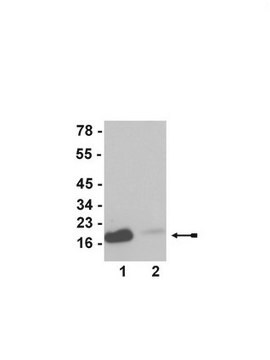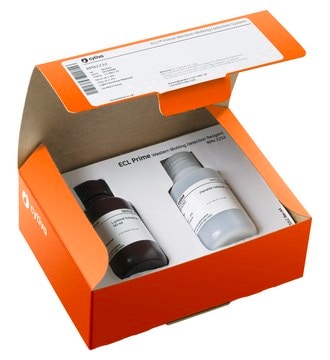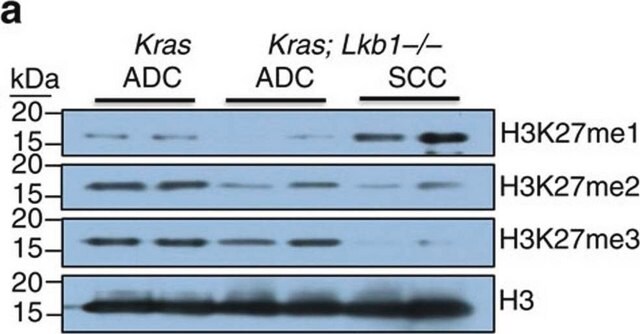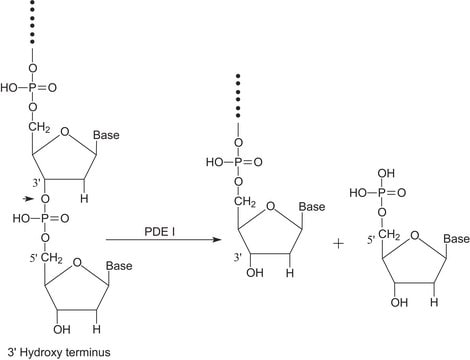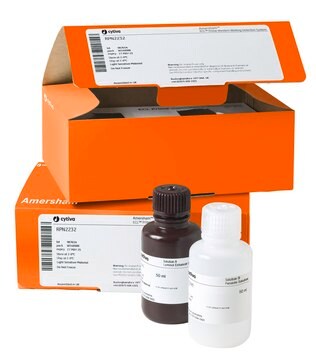05-673
Anti-phospho-Acetyl CoA Carboxylase (Ser79) Antibody, clone BK102
clone BK102, Upstate®, from mouse
About This Item
Prodotti consigliati
Origine biologica
mouse
Livello qualitativo
Forma dell’anticorpo
purified immunoglobulin
Tipo di anticorpo
primary antibodies
Clone
BK102, monoclonal
Reattività contro le specie
rat, mouse
Produttore/marchio commerciale
Upstate®
tecniche
western blot: suitable
Isotipo
IgG1λ
N° accesso UniProt
Condizioni di spedizione
wet ice
modifica post-traduzionali bersaglio
phosphorylation (pSer79)
Informazioni sul gene
mouse ... Acaca(107476)
Categorie correlate
Specificità
Immunogeno
Applicazioni
Signaling
Insulin/Energy Signaling
Qualità
Descrizione del bersaglio
Stato fisico
Stoccaggio e stabilità
Risultati analitici
Acid extracts of HeLa cells
Note legali
Esclusione di responsabilità
Non trovi il prodotto giusto?
Prova il nostro Motore di ricerca dei prodotti.
Codice della classe di stoccaggio
12 - Non Combustible Liquids
Classe di pericolosità dell'acqua (WGK)
WGK 1
Punto d’infiammabilità (°F)
Not applicable
Punto d’infiammabilità (°C)
Not applicable
Certificati d'analisi (COA)
Cerca il Certificati d'analisi (COA) digitando il numero di lotto/batch corrispondente. I numeri di lotto o di batch sono stampati sull'etichetta dei prodotti dopo la parola ‘Lotto’ o ‘Batch’.
Possiedi già questo prodotto?
I documenti relativi ai prodotti acquistati recentemente sono disponibili nell’Archivio dei documenti.
Il team dei nostri ricercatori vanta grande esperienza in tutte le aree della ricerca quali Life Science, scienza dei materiali, sintesi chimica, cromatografia, discipline analitiche, ecc..
Contatta l'Assistenza Tecnica.
